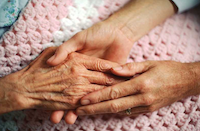-
Advocacy Theme
-
Tags
- Abortion
- Adoption
- Caregiving
- CEDAW
- Disability
- Domestic Violence
- Domestic Workers
- Harassment
- Healthcare
- Housing
- International/Regional Work
- Maintenance
- Media
- Migrant Spouses
- Migrant Workers
- Muslim Law
- National budget
- Parental Leave
- Parenthood
- Polygamy
- Population
- Race and religion
- Sexual Violence
- Sexuality Education
- Single Parents
- Social Support
- Sterilisation
- Women's Charter
State support for retirement is about meeting basic needs
September 26th, 2016 | Letters and op-eds, News, Older People and Caregiving, Poverty and Inequality, Views
This post was originally published as a letter in The Straits Times on 24 September 2016
 Recent discussion about collective support for retirement have led to concerns that society may incur a tax burden to create a “culture of helplessness” or coddle the personal failure of individuals to work and save (“Extend helping hand, not handouts, to retirees”, 19 Sep). However, this characterisation of state support for the elderly misses out the very real phenomenon of impoverishment in old age.
Recent discussion about collective support for retirement have led to concerns that society may incur a tax burden to create a “culture of helplessness” or coddle the personal failure of individuals to work and save (“Extend helping hand, not handouts, to retirees”, 19 Sep). However, this characterisation of state support for the elderly misses out the very real phenomenon of impoverishment in old age.
To many impoverished older people, retirement is a luxury that they cannot afford. State support is needed not to enable a period of optional leisure, but simply to meet basic needs.
Our qualitative research into the lives of impoverished older women has found that for many, financial inadequacy is the result of unpaid care work taken on earlier in life – a form of labour they are sometimes carrying on into old age if they remain caregivers, for instance, of children with disabilities.
Unpaid caregiving for family members – children, siblings or parents – requires an economic sacrifice in terms of a loss in income and Central Provident Fund (CPF) savings. This unpaid work is not rewarded and thus goes unreflected in these women’s retirement finances, even though this labour is a key component of social investment, especially into the next generation. In other words, care labour by women carries what economists call “positive externalities” – social benefits unrecognised by the parties to the transaction, but creating value for society as a whole.
Given the value of women’s caregiving and the risk of impoverishment that it brings, especially given women’s longer lifespans, it is not merely fair and equitable that the society which benefits from this unpaid labour helps to sustain it through state support. It is also a prudent investment into the longer-term sustainability of care.
Caregivers who are inadequately supported experience multiple forms of pressures and lower levels of well-being. This can increase the risk of ill-treatment of the people under their care, and family relationships can implode under the strain. Older people’s physical and mental well-being also deteriorates when they do not receive necessary care, for example because their finances do not permit of timely preventative healthcare.
Rather than providing more extensive assistance at greater cost to deal with the consequences of inadequate care, it makes more economic sense to provide early support to both elderly care recipients and caregivers, through state investment in the home care and primary healthcare sector.
Finally, we are concerned that the conditions for impoverishment of older women are being replicated in younger cohorts. In 2015, of the 273,000 women outside the labour force because of “family responsibilities”, there were 147,000 women aged 25-54.[1] Because care pressures remain gendered, the issue of elderly women’s impoverishment is not going to disappear simply because of inter-generational advances in women’s education. It is thus prudent to start seriously considering what support we should offer to caregivers to prevent them from ageing into impoverishment.
[1] From Labour Force Survey 2015 (MoM) http://stats.mom.gov.sg/iMAS_PdfLibrary/mrsd_2015LabourForce_survey_findings.pdf



